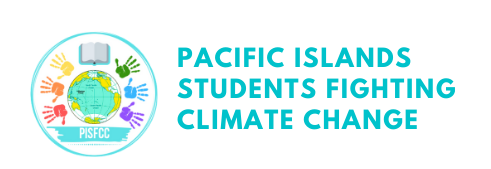Bringing the People’s Voice to the International Court of Justice
Over 50 people, including youth, indigenous and experts across various fields gathered in an empowering initiative, the People’s Assembly, to share how their lives have been impacted by climate change and to contribute to an outcome document presented to the International Court of Justice (ICJ) via oral statements on the 13th of December, 2024.
The Assembly brought frontline voices to the forefront of international climate justice. Designed as a catalyst program for the ongoing ICJ advisory opinion on climate change, the Assembly aimed to amplify the experiences and demands of those most impacted by the climate crisis, providing a platform for individuals from across the globe to share their stories and resilient solutions.
Victoria Elizabeth Whalen, Co-Executive Director of Future Generations Tribunal added:
“The People’s Assembly brought together people on the frontlines of the climate crisis. Their stories speak louder than any legal arguments could - loss of family, friends, land and culture - this is what the climate crisis means for many of us. The organisation of the People’s Assembly is a small representation of the power of authentic participatory assemblies and inclusive decision making and will hopefully have ripple effects on future law and policy.”
Over the three-day Assembly, a team of researchers from the World’s Youth for Climate Justice (WYCJ), the Pacific Islands Students Fighting Climate Change (PISFCC), and the Future Generations Tribunal (FGT), and experts from the fields of health, human rights, and climate justice witnessed the testimonies from frontline communities. Together, they reflected on the lived experience of the witnesses of the crisis and the needs for justice in the fight against climate change. Some of the experts include former United Nations Special Rapporteur on human rights and the environment, Dr. David R. Boyd, and international human rights and criminal lawyer, Mayuri Anupindi.
Mathani, Republic of Sudan said:
“Sudan's case is a vicious cycle of injustice that never ends and takes more and more from people everyday. Yet to have my little contribution received with so much empathy, love and solidarity filled us with hope again. I am hopeful the ICJ gives justice to our voices and heals the wounds caused by climate change in our countries.”
The Assembly concluded with the creation of an outcome document - The People’s Petition, synthesizing key insights and themes emerging from civil society, from the right to a healthy environment to an analysis of needs for justice. The document will be submitted to the ICJ on behalf of 18 contributors who testified, emphasizing the importance of aligning legal outcomes with the urgent needs of the people facing the climate crisis. The outcome of the People’s Assembly serves both as a call to action and reminder to the Court: the decision of the Court must be informed by the lived realities of those most impacted by the climate crisis.
Hafeez Ur Rehman, Karachi, Pakistan said
“Today, I have brought the case of our Indigenous community to this international conference because we are interconnected with the world. The world is facing environmental destruction and uniting against it. We are playing our part, and we hope the world will raise its voice for us as well.”
-ends-
World’s Youth for Climate Justice: Jule Schnakenberg (jule@wy4cj.org)Pacific Island Students Fighting Climate Change: Vishal Prasad (vishal@pisfcc.org) The Future Generations Tribunal: Fatemah Sultan (fatemah@futuregenerationstribunal.com)